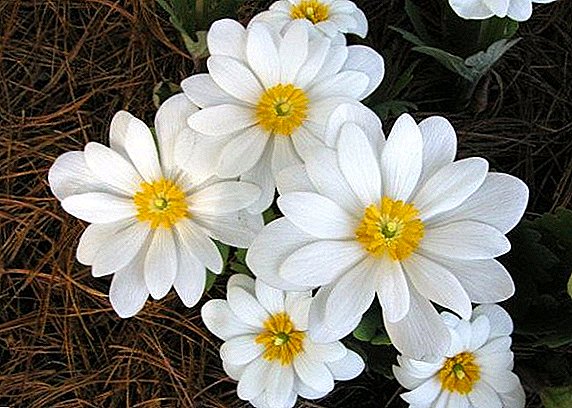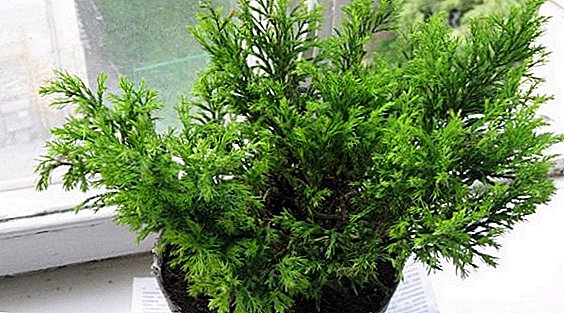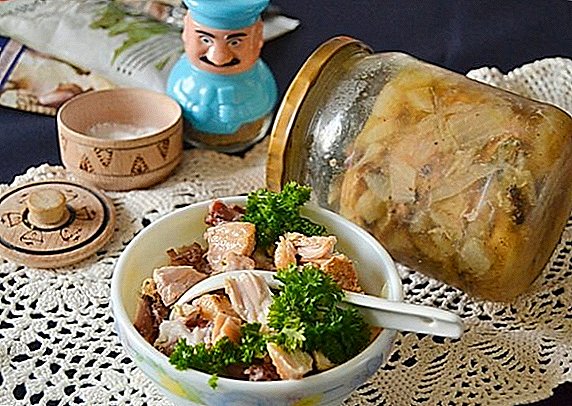
Dill - a popular spice used in various dishes, bringing great benefits to the human body.
The plant contains high concentrations of bioactive substances that have a positive effect on the body of the newborn baby and the breastfeeding woman.
Many lactating mothers prefer to take not pharmaceuticals to increase lactation, but dill water is a natural and effective product.
What is this water?
Pharmaceutical dill water - extract of fennel seeds (pharmacy dill) or essential oil of the plant. The solution is sold in glass bottles (volume from 15 to 100 ml). As part of the seed extract and distilled water. The main purpose of the drug - the normalization of the digestive tract.
Also in the pharmacy, you can buy herbal tea from ground to powder seeds. Packaging includes 10 or 30 filter bags.
Can and should breastfeeding be taken?
 Breast-feeding women are advised not only to enrich their diet with fresh dill, but also to take dill water. The product is of great benefit to the maternal organism.:
Breast-feeding women are advised not only to enrich their diet with fresh dill, but also to take dill water. The product is of great benefit to the maternal organism.:
- supports lactation, stimulates the production of breast milk;
- removes harmful accumulations from the vascular bed and intestinal tract;
- has a mild laxative and diuretic effect, prevents constipation and edema;
- promotes weight loss in the postpartum period;
- restores the recurrence of menstruation;
- eliminates excess gas and spasmodic pain in the intestines.
Benefit for babies
Dill water is good for the body, not only a nursing mother, but also a baby. It not only stimulates lactation, but also enriches breast milk with bioactive substances necessary for the full development of the child’s body. The baby, consuming milk enriched with vitamins and mineral elements, does not experience a deficiency of nutrients and develops correctly and actively.
Vodicka also contains substances that, if ingested, eliminate colic and constipation, normalizing the functioning of the infant digestive tract.
Chemical composition
The chemical composition of dill water is almost similar to the seeds of dill.. However, it is better absorbed, so its therapeutic effect is more pronounced. As part of the water there is a large number of bioactive substances that benefit the mother and baby:
- essential oils with a tonic and carminative effect;
- phytoncides, carotenoids, flavonoids, which have an antioxidant effect.
 Of the vitamins should be noted:
Of the vitamins should be noted:
- ascorbic acid (C) - 0.3 mg per 100 g of solution (0.3% of the daily intake rate);
- thiamine (B1) - 6 μg (0.4%);
- riboflavin (B2) - 4 µg (0.2%);
- niacin (B3) - 0.04 mg (0.2%);
- pyridoxine (B6) - 4 µg (0.2%).
Mineral composition is presented:
- potassium - 17 mg per 100 g of drink (0.7% of the daily requirement);
- calcium - 27 mg (2.7%);
- iron - 0.2 mg (1.4%);
- magnesium - 5 mg (1.2%);
- phosphorus - 4 mg (0.5%);
- zinc - 0.08 mg (0.6%);
- selenium - 0.2 µg (0.3%);
- manganese - 0.03 mg (1.4%);
- copper - 12 mcg (1.2%).
Indications for use
Dillwater is shown as a remedy for breastfeeding women.:
- getting rid of constipation and bloating in the postpartum period;
- normalization of the state of the body after pregnancy;
- stimulate production and improve the allocation of breast milk;
- prevention of milk stagnation and inflammation of the mammary glands.
Vomichku mother can not only use itself, but also give the baby from the second week of life for:
- removal of gases from the intestine;
- relieving colic pain;
- strengthen the immunity of the child;
- easy cleansing of the children's intestinal tract without affecting the healthy microflora;
- stimulate the synthesis of digestive enzymes.
Harm, side effects and allergies
With too frequent use of the drug may cause adverse reactions.:
- diarrhea;
- low blood pressure;
- excessive gas formation;
- allergic skin reaction.
In cholelithiasis, there is a high likelihood of blockage of the lumen of the biliary tract, resulting in intense pain in the right subcostal area and bouts of vomiting.
Contraindications
Drink from fennel seeds has few contraindications. Cannot be taken with:
- idiosyncrasy of dill and fennel;
- gallstone disease;
- children under 2 weeks.
Overdose
 Dill water - the drink as a whole is harmless, the unpleasant consequences of overdose rarely have a pronounced manifestation. Common symptoms of excessive use:
Dill water - the drink as a whole is harmless, the unpleasant consequences of overdose rarely have a pronounced manifestation. Common symptoms of excessive use:
- urge to vomit;
- diarrhea;
- spasmodic abdominal pain.
If you experience these symptoms, you should stop taking the drink.. After the state is normalized, drinking water can be resumed, but with strict observance of the recommended dosage.
How to drink: method of use and dose
Dill seed is not an allergenic product, so mothers can enrich their diet from 10 days after delivery without harming the baby’s body. Drink daily for 10 days, then a 2-week break is taken, after which the course can be repeated. The recommended dosage is 3 times a day for a glass, or 6 times for half a glass. Drink some water should be 30 minutes before breastfeeding.
Step-by-step recipes
Prepare a dill drink that stimulates lactation, eliminates colic in an infant, easy. The positive effect will be stronger if every day to prepare and use fresh water. Below are detailed recipes.
For lactation
There are two cooking options.:
- Take a tablespoon of seeds, pour a glass of boiling water, stir. Leave the drink for 15 minutes to infuse in a container with a lid. Ready means strain through gauze or cotton fabric.
- Take a tablespoon of fresh chopped dill, pour 0.5 liters of boiling water. Leave the beverage to infuse for 20 minutes. Strain before use.
Instead of seeds and herbs of the plant, you can use fennel pharmacy oil. This is an extract of high concentration, so when preparing a drink, you must carefully observe the dosage of the components, so as not to cause harm to the body. Per liter of water take only 2 drops of oil.
With colic in a child
In the first months after birth, babies often suffer from colic, because their digestive system is only formed, enzymes for digesting food are synthesized in insufficient quantities. To improve the condition of the baby, mothers drink dill water..
 Cooking is simple. A tablespoon of seeds poured a glass of boiling water, insist an hour. Strained drink drink 2 tablespoons before meals. To normalize the condition of the child is enough 3-day course.
Cooking is simple. A tablespoon of seeds poured a glass of boiling water, insist an hour. Strained drink drink 2 tablespoons before meals. To normalize the condition of the child is enough 3-day course.
If the course passed by mom did not give effect, then it is recommended to give a drink to the child.
- Baby up to a month on the tongue drip up to 15 drops of funds 2 - 3 times a day.
- An older child a teaspoon of drink is added to a bottle of mother’s expressed milk or with an artificial mixture.
Reception means continues to improve the condition of the intestines.
Fighting overweight
Many women who have given birth struggle with the extra pounds gained during pregnancy. Dill is an effective aid in the fight against excess weight.. It contains few calories (only 4.5 kcal per 100 ml), it contains substances that eliminate constipation and accelerate the burning of fat deposits.
To prepare a drink for weight loss take a tablespoon of seeds, pour a glass of boiling water. The drink is infused for 1.5 hours, filtered. It is necessary to drink means instead of tea between meals.
Where to buy and for how much?
Buy dill water can be ordered in pharmacies with the prescription department. You can also buy fennel extract, which will have to be independently diluted with water according to the enclosed instructions. Even mothers are willing to take in Plants pharmacies dill powder "Plantex" in filter bags for tea.

- Ready vodichka in the prescription department will cost 200 - 250 rubles.
- The drug "Plantex" (30 bags) costs 400 - 650 rubles.
- Cost of fennel extract (15 ml):
- in Moscow - 175 - 280 rubles;
- in St. Petersburg - 175 - 230 rubles.
Dill water relieves the baby of colic, the mother helps to cope with excess weight, improve lactation, restore the body after childbirth. The finished product is sold in pharmacies, but many moms make the tool themselves. The recipes are simple, you can use the seeds of fennel or dill.












